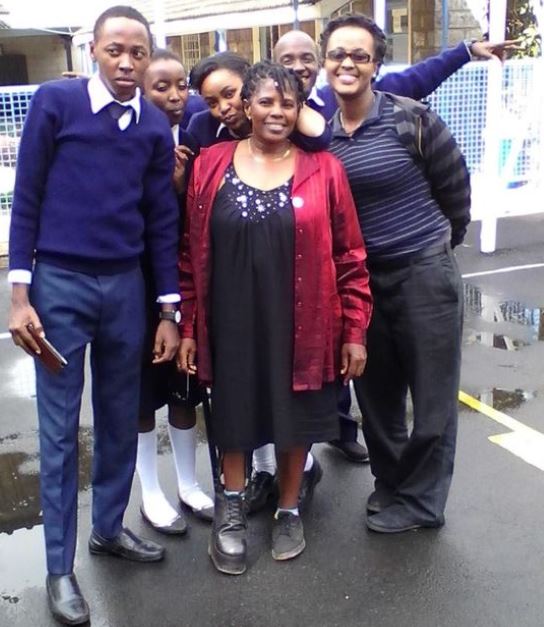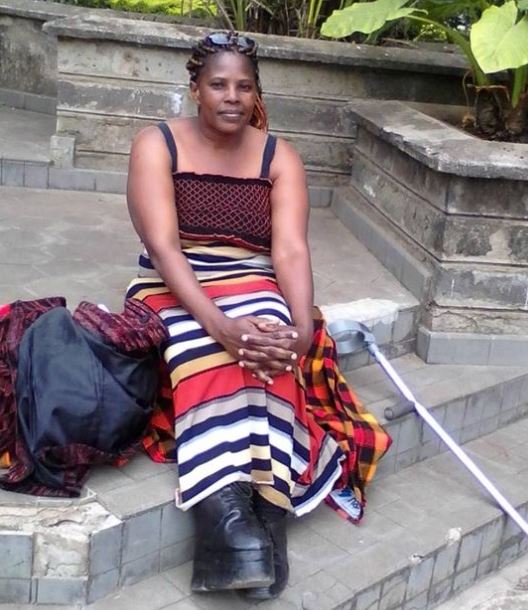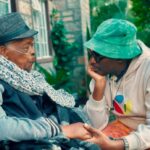 Tahidi High actress Joyce Wanjiku, alias Kellen, has opened up about her difficult upbringing, revealing that she was rejected by her family because of her disability.
Tahidi High actress Joyce Wanjiku, alias Kellen, has opened up about her difficult upbringing, revealing that she was rejected by her family because of her disability.
Ms Wanjiku, who was born in Tanzania, developed complications in her leg after she was given a wrong injection at the age of six.
Speaking in a YouTube interview, the actress said one of her legs could not grow and she had to use a walking stick given to her by her dad.
Wanjiku said her condition was seen as a curse by her Tanzanin father and Kenyan mother.
“They started fighting and quarreling because of my sickness, claiming it was a curse from either family,” she narrated.
Adding: “My father would beat my mum so much, saying, “Esther chukua kilema chako upeleke nyumbani Kenya.”
A tearful Wanjiku also noted that: “I was mistreated and would sleep on the floor,” she said.
Ms Wanjiku said her parents separated during the Kagera war between Uganda and Tanzania, with her mum being forced to flee back to Kenya. Given that there were no vehicles at the time, they were forced to walk to Kenya but Kellen, who was just 7 years old, was left behind.
“My mother told me they could not proceed with the journey with me as I could not walk with my sick leg,” she said.
After she was left behind, an army lorry picked her up and took her to the Kenyan border and subsequently to the DO’s office.
For nearly two months, Wanjiru languished in a police station.
“I was taken to the court every day and nobody came to look for me,” she said.
“I once saw my uncle in the court, but he did not pick me. I did not say I know him as well as he did not want to associate with me. I did not want him to take me and take me to a place they would mistreat me.”
Ms Wanjiru was picked by the government and taken to Kabete children’s home, where she stayed for six months. She was later transferred to Dagoreti children’s home.
“The place was better than my home because I was taken to school and there was no rejection. I enjoyed it, though it was not the best,” she said.
“Some things we don’t talk about them because they traumatised us.”







